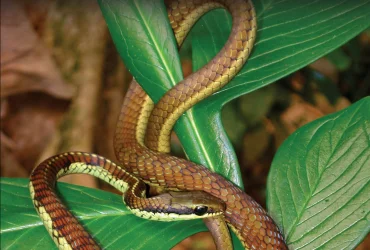Volume 3 | Number 2 | November 2011
 v3i2.47
v3i2.47ISSN: 1800-427X (print)
eISSN: 1800-427X (online)
DOI:10.47605/tapro.v3i2.47
Published date: 20 December 2011
Pp. 50–51
EDITORIAL : Natural History Today and Tomorrow
Bruce M. Beehler
Section Editor: Taprobanica, the journal of Asian Biodiversity
Although it is often said that the 19th Century was the epoch Natural History, the most substantial efforts in the study of nature and natural history will almost certainly be recorded during the 21st Century, which Alain Dubois (2010) has dubbed “the century of extinctions”. We will thus be learning more about nature at the same time that we may be witnessing its wholesale demise. Still, today it is not too late to change course, through a greater appreciation of Natural History. In most societies science and technology are today predominant. This editorial argues that natural history is an equally important field of knowledge—one that knits together the work of biogeography, taxonomy, ecology, ethology, and evolution. Knowledge and appreciation of natural history underpins all actions that sustain the wealth of nature, which, in turn, underpins the future of our every-day existence.
eISSN: 1800-427X (online)
DOI:10.47605/tapro.v3i2.47
Published date: 20 December 2011
Pp. 50–51
EDITORIAL : Natural History Today and Tomorrow
Bruce M. Beehler
Section Editor: Taprobanica, the journal of Asian Biodiversity
Although it is often said that the 19th Century was the epoch Natural History, the most substantial efforts in the study of nature and natural history will almost certainly be recorded during the 21st Century, which Alain Dubois (2010) has dubbed “the century of extinctions”. We will thus be learning more about nature at the same time that we may be witnessing its wholesale demise. Still, today it is not too late to change course, through a greater appreciation of Natural History. In most societies science and technology are today predominant. This editorial argues that natural history is an equally important field of knowledge—one that knits together the work of biogeography, taxonomy, ecology, ethology, and evolution. Knowledge and appreciation of natural history underpins all actions that sustain the wealth of nature, which, in turn, underpins the future of our every-day existence.
Hubungi Kami
The ultimate aim of the journal is to provide an effective medium for communication of the latest and best scientific information.
Copyright © 2020 Taprobanica. All Rights Reserved
Jasa Pembuatan Website by IKT




